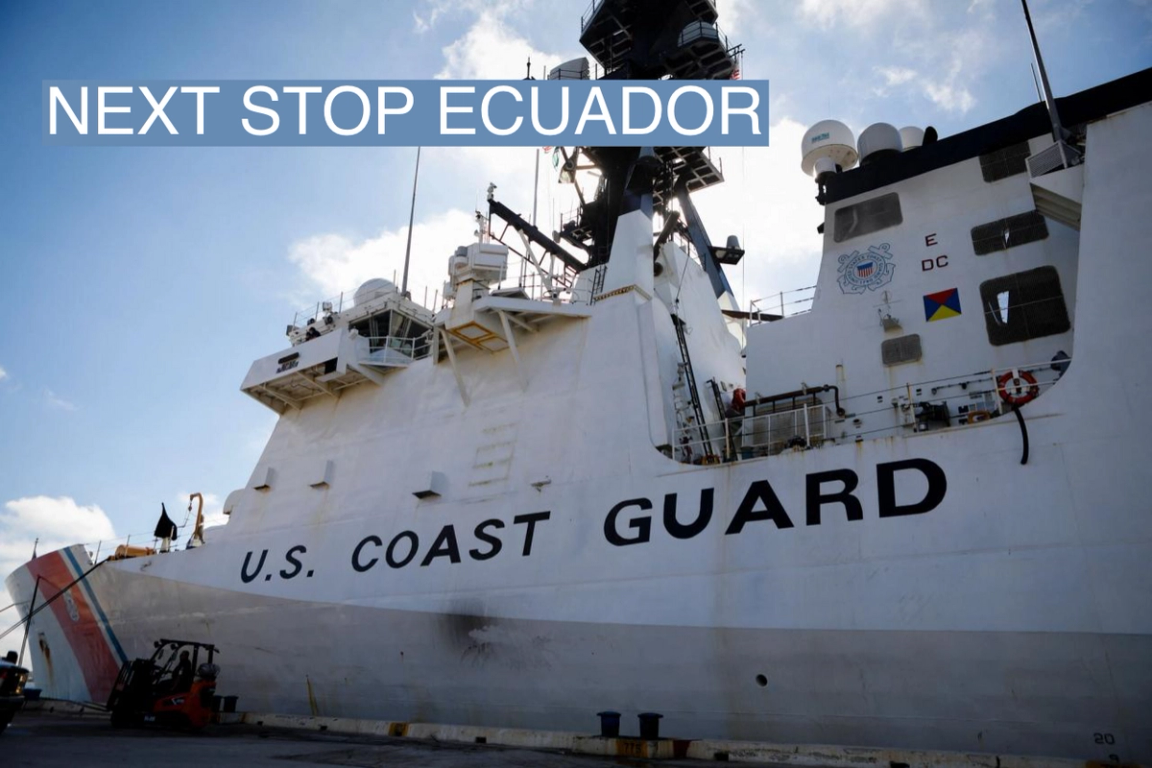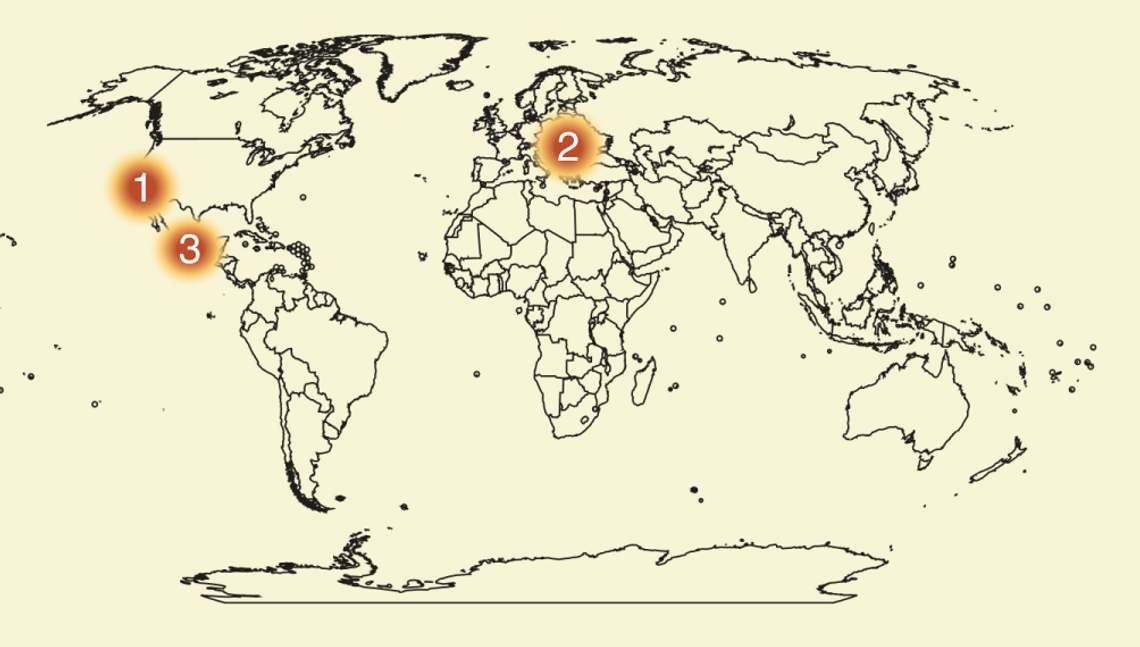 EVA MARIE UZCATEGUI/AFP via Getty Images EVA MARIE UZCATEGUI/AFP via Getty ImagesTHE NEWS The Coast Guard is going to be spending a lot more time away from American shores. The Biden administration is planning to aggressively deploy the service far beyond U.S. waters help contain threats posed by Russia and China. Senior Pentagon and Coast Guard officials have outlined in recent weeks an ambitious program to use the Guard’s “white hull” fleet on missions ranging from better policing the Arctic against Russian intrusions to helping island nations in the Pacific shore up the defenses of their maritime borders. Coast Guard cutters are also deploying in international waters to guard against illegal Chinese fishing, which is impacting countries such as the Philippines and Ecuador. The Coast Guard formally operates under the Department of Homeland Security during peacetime. But it closely coordinates its activities with the Pentagon to support the Navy and Air Force by conducting search-and-rescue, law enforcement, and humanitarian missions across the globe. The service frequently plays a role in foreign disaster relief efforts, for instance. Defense officials have said the Coast Guard’s mix of policing and humanitarian capabilities makes it unique among the U.S. national security agencies, and is ideal for missions that involve diplomacy with smaller, developing nations. “In many cases, the Coast Guard is absolutely the right force to deploy,” the commander of U.S. forces in the Indo-Pacific, Admiral John Aquilino, said in a speech last month. “You’re going to see more Coast Guard in the Pacific.” In recent weeks, the Coast Guard’s commandant, Admiral Linda Fagan, said she deployed ships in the waters off Antarctica to push back against Russia’s naval presence. Fagan, who last year became the first woman to lead a branch of the U.S.’s armed services, said the Kremlin isn’t accustomed to seeing American vessels so far north — a region increasingly at the center of international competition. “The way you protect your sovereignty is through presence,” Fagan said Tuesday in Washington, noting that the U.S. is an Arctic nation. “We definitely caught the attention of the Russians.” JAY’S VIEW The Coast Guard’s growing international role is partly a reflection of how American competition with Russia and China is playing out in ever-more far-flung parts of the globe, and often involves missions where it would be too expensive and aggressive to send naval ships. While the war in Ukraine and politics surrounding Taiwan generate the headlines, critical conflicts are also quietly unfolding in Antarctica’s frigid waters and the Indo-Pacific’s remote archipelagos. In recent months, the Biden administration expanded its diplomatic presence in countries like the Solomon Islands, Kiribati, and Tonga to compete with China’s influence there. The Navy and Coast Guard are seeking to help these countries secure their maritime borders. The U.S. is also attempting to crack down on China’s prolific fishing operations – which Washington alleges is often illegal – with the help of other nations’ coast guards. That has turned the waters surrounding the Galapagos Islands off Ecuador into an unlikely flash point in the rivalry between Washington and Beijing. There the Coast Guard has been policing against illegal fishing under the flag of the South Pacific Regional Fisheries Management Organization. Massive Chinese fleets that fish marlin and squid are the primary culprits of illegal commerce in the area, according to U.S. officials. Last summer, a heavily armed Coast Guard cutter, the James, sought to inspect Chinese fishing vessels near the Galapagos. According to an Associated Press report, three of the Chinese ships sped away, and one appeared to try and ram the American vessel. The Chinese Foreign Ministry sent a demarche to the U.S. embassy in Beijing complaining about the incident, claiming the Americans acted illegally. The Coast Guard’s smaller ships and crews could also help bring down the Defense Department’s overall costs as it expands into the Indo-Pacific. The Navy’s smallest patrol vessel costs $500 million to build and $50 to $70 million per year to operate. The Coast Guard, in contrast, is currently seeking $400 million to purchase four Fast Response Cutters, which have been used to conduct long-range patrols out of Hawaii and Guam and help police international fishing waters and Exclusive Economic Zones. The boats will “further the Indo-Pacific Strategy of the United States through expanded presence and engagement to promote a free and open Indo-Pacific,” the Coast Guard wrote in its funding request. THE VIEW FROM BEIJING Beijing has been closely tracking American moves in the Indo-Pacific, including the Coast Guard’s, and says they’re part of a concerted effort by the U.S. and its allies to encircle and weaken China. Chinese leaders and state media have argued the U.S. wasn’t interested in its relations with Pacific-island countries until they noticed China’s economic, diplomatic, and military presence there. U.S. allegations of illegal fishing, these officials and state media say, are just a cover for expanding U.S. military operations. “Some U.S. officials said they do not ask Pacific-island nations to take sides between China and the U.S. and relevant cooperation doesn’t target China,” said Chinese Foreign Ministry spokesman, Wang Wenbin, last year. “We hope the U.S. can do what it says.” NOTABLE | 






